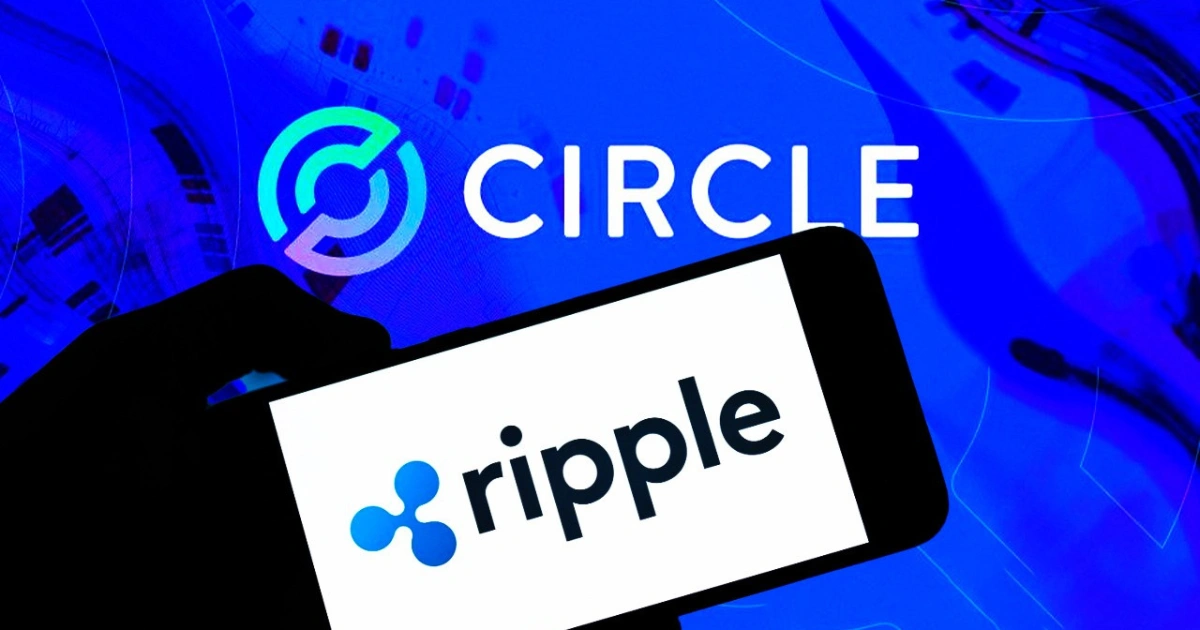Author: Fairy, ChainCatcher
Editor: TB, ChainCatcher
The wave of crypto banking is rising again.
Stablecoin giant Circle and Ripple have both applied for U.S. banking licenses, aiming to access the federal regulatory system and custody their own assets. Meanwhile, Silicon Valley moguls Palmer Luckey and Peter Thiel have teamed up to establish a crypto-friendly bank, Erebor.
On one side, crypto companies are actively "entering the system," while on the other, tech elites are building their own frameworks. This dual assault may change the landscape of the U.S. banking system.
Silicon Valley Moguls Build Crypto Bank, Digital "Lonely Mountain" Rises
Silicon Valley power players are playing a grand game of finance.
Palmer Luckey, co-founder of defense tech company Anduril, is leading the charge alongside PayPal co-founder Peter Thiel, 8VC founder Joe Lonsdale, and others to create a new crypto bank, Erebor.
These billionaires are not only significant "financial backers" for Trump in the 2024 U.S. presidential election but also represent some of the most influential tech capital in the U.S. They are attempting to reposition themselves within the gaps of the traditional financial system.

Left: Peter Thiel, Right: Palmer Luckey
The name "Erebor" is derived from the "Lonely Mountain" in "The Lord of the Rings," which is filled with treasures, symbolizing wealth, power, and protection. In reality, Erebor aims to become the "guardian of the gold mountain" in the tech world.
In the wake of the collapse of Silicon Valley Bank (SVB) and with billions in funding in limbo, Erebor waves the flag of a "new type of safe haven," targeting startups, crypto pioneers, and even overseas tech companies eager to enter the U.S. banking system, intending to capture this urgently needed blue ocean market.
Currently, Erebor has officially applied to U.S. regulators for a national banking license, planning to establish a fully licensed bank. According to the application documents, stablecoin operations will be one of its core focuses. The bank will concentrate on stablecoin services anchored to real assets like the U.S. dollar, aiming to become "the most regulated stablecoin trading institution."
The management team includes Jacob Hirshman, a former advisor to Circle, and digital asset compliance expert Owen Rapaport as co-CEOs, with former New Jersey Valley National Bank executive Mike Hagedorn serving as president. Headquartered in Columbus, Ohio, with an office in New York, the bank will operate fully digitally, with products and services available through a mobile app and website.
Will this rising "digital lonely mountain" give birth to a new financial giant?

Crypto Legion Storms the Banking Industry
While tech moguls forge the "digital lonely mountain" Erebor, two crypto companies have chosen to step into the traditional financial sector, embarking on the path of "integration."
Stablecoin issuer Circle and cross-border payment network Ripple submitted their banking license applications to U.S. regulators within two days of each other. If approved, both companies will officially enter the federal regulatory system, subject to oversight by the Office of the Comptroller of the Currency (OCC), and comply with capital, liquidity, and risk control requirements equivalent to those of traditional banks.
Circle is applying for a "national trust bank" license, aiming to gain complete custody of its stablecoin reserves and provide custody services for crypto assets, including tokenized stocks and bonds, to institutional clients. Although this license does not allow it to accept cash deposits or issue loans, it is a significant step forward for Circle on the path to institutional compliance.
Ripple's ambitions are even greater: not only is it applying for a national bank license, but it is also seeking access to the Federal Reserve's master account system, aiming to directly participate in federal payment network clearing transactions. This permission is extremely rare even among traditional fintech companies. If approved, Ripple could directly custody its issued stablecoin RLUSD reserves at the Federal Reserve.
Previously, the OCC had maintained a cautious stance towards crypto, having rejected Kraken's banking license application in 2023. Currently, Anchorage Digital is the only digital asset company with a national trust bank license.
However, the regulatory winds are shifting, with the OCC now led by Rodney Hood, a Trump appointee, which adds new possibilities for Circle and Ripple's "compliance upgrade."
Silicon Valley capital is establishing crypto banks, while crypto giants are actively becoming crypto banks. These two fronts are forming a siege in the ultimate game of power in the U.S. financial landscape.

A Hidden Line Restructuring Financial Rules
Crypto journalist Eleanor Terrett has vividly compared the hierarchy of financial licenses: "The master account is diamond level, the bank license is platinum level, the trust company is gold level, and the money transmission license is silver level."
In this power coordinate system, Circle and Ripple's sprint for banking licenses has transcended mere qualification upgrades, marking the entry of crypto companies into a position equivalent to traditional banks.
This not only means that cryptocurrency products will be embedded in the existing financial system in their "native digital form," but more importantly, the logic of programmable money and on-chain asset settlement is challenging the underlying architecture of traditional finance. As Chris Colson, a payments expert at the Federal Reserve, stated, this step "could open the door to broader institutional adoption and cross-border payments," indicating that stablecoins are poised to truly enter mainstream finance.
What Circle, Ripple, and Erebor are competing for is not just business space, but the "design rights" and "voice rights" in a new round of financial order: Who will control crypto asset custody? Who can build the clearing system? This competition concerns the future landscape of digital finance.
Recommended Reading:
Circle's Strong IPO, Two Circuit Breakers, Who Are the Beneficiaries Behind It?
免责声明:本文章仅代表作者个人观点,不代表本平台的立场和观点。本文章仅供信息分享,不构成对任何人的任何投资建议。用户与作者之间的任何争议,与本平台无关。如网页中刊载的文章或图片涉及侵权,请提供相关的权利证明和身份证明发送邮件到support@aicoin.com,本平台相关工作人员将会进行核查。




